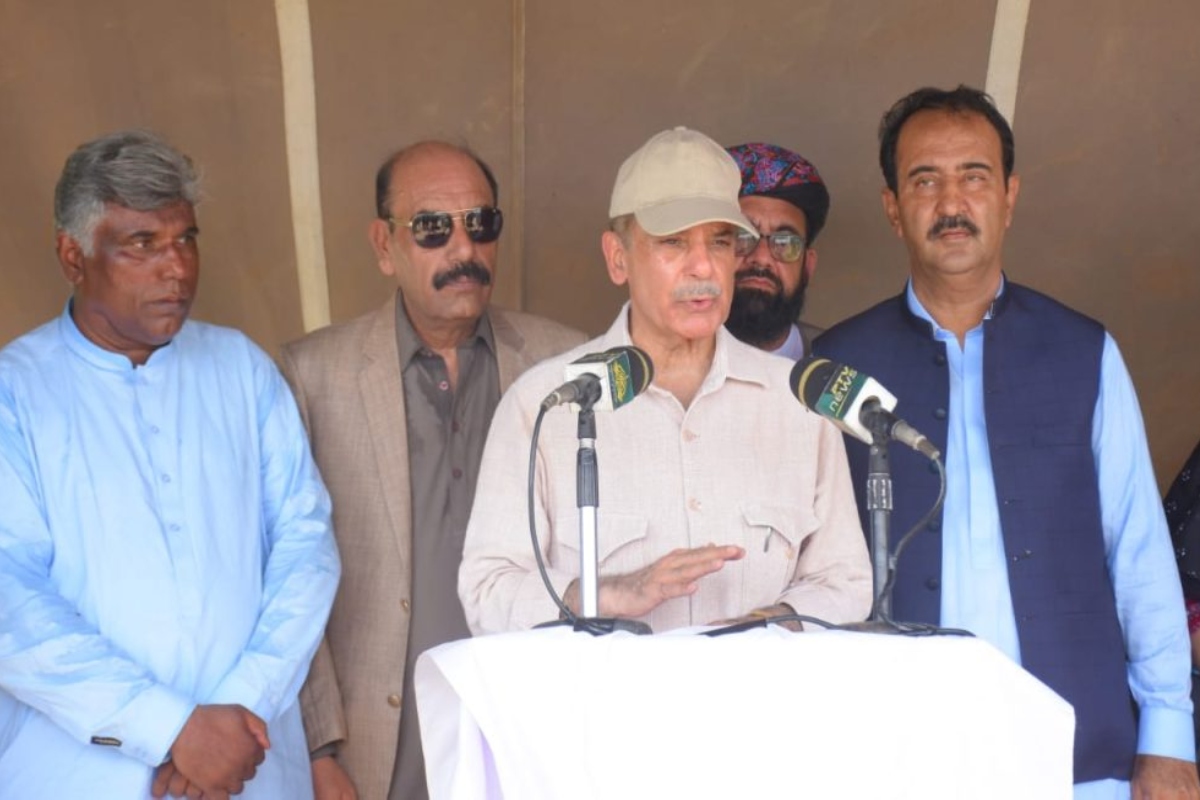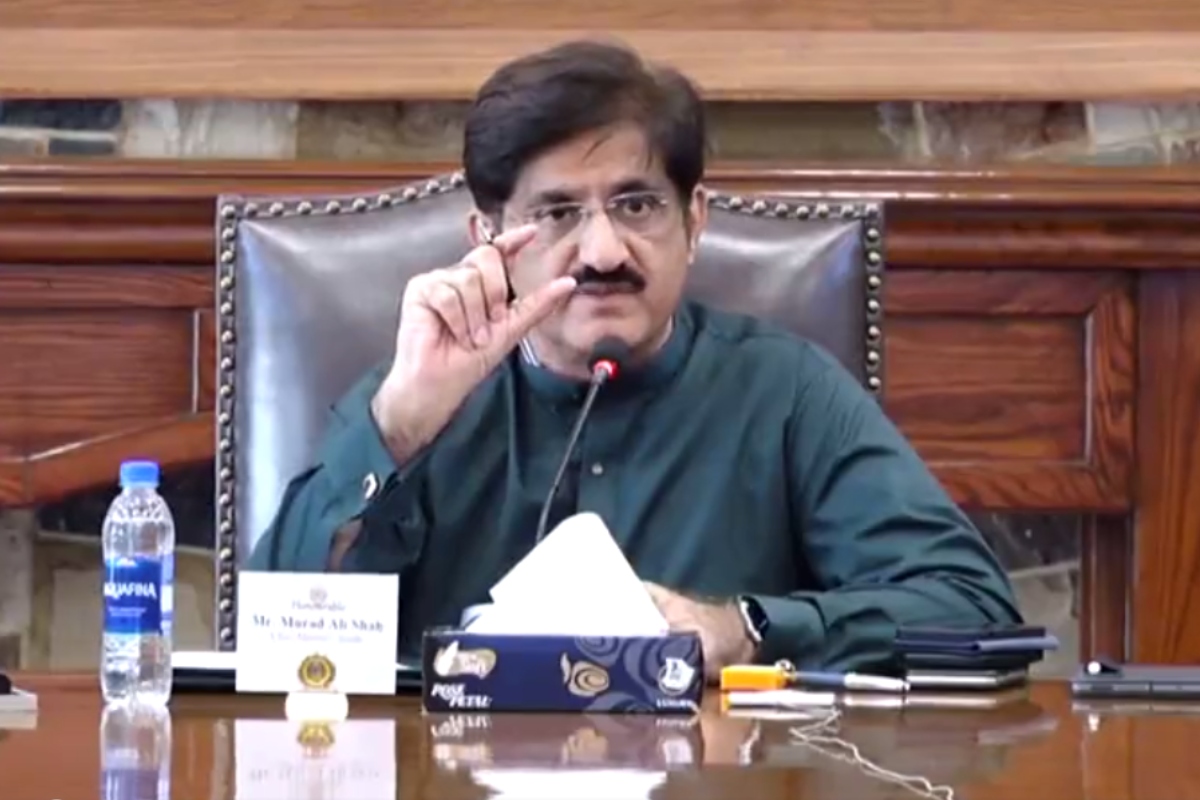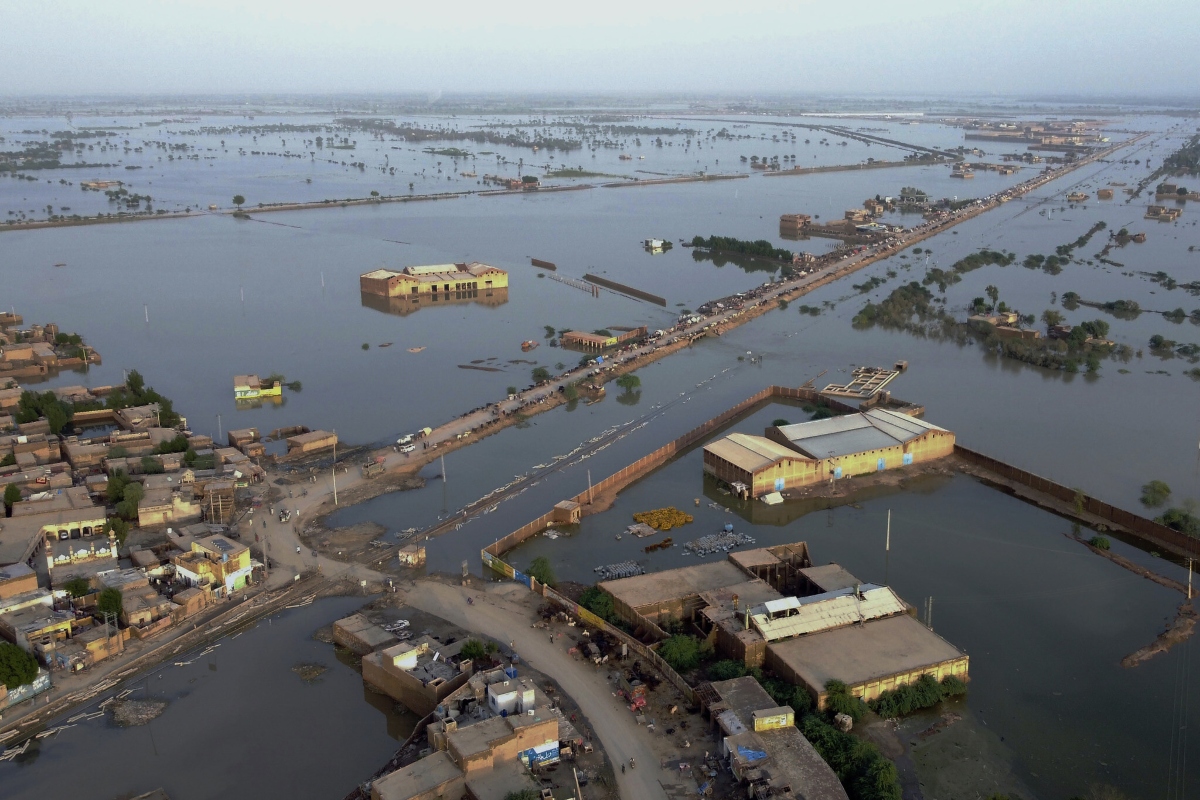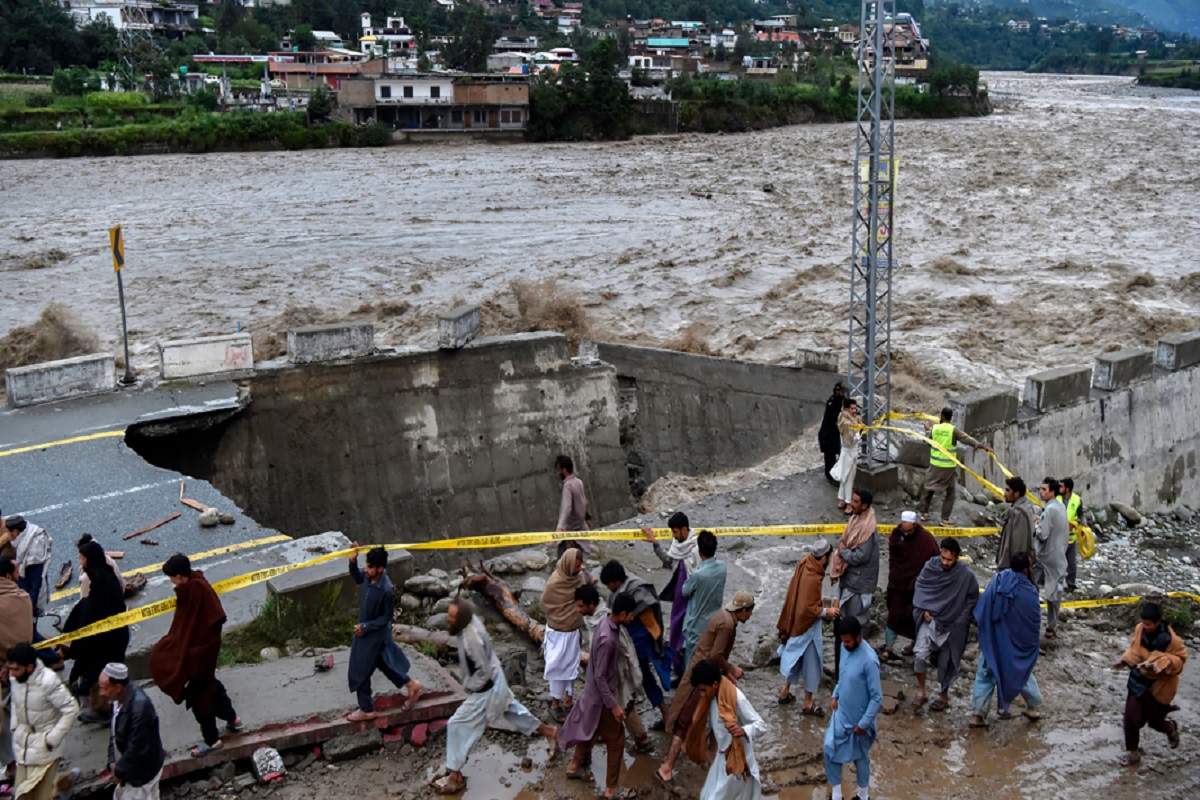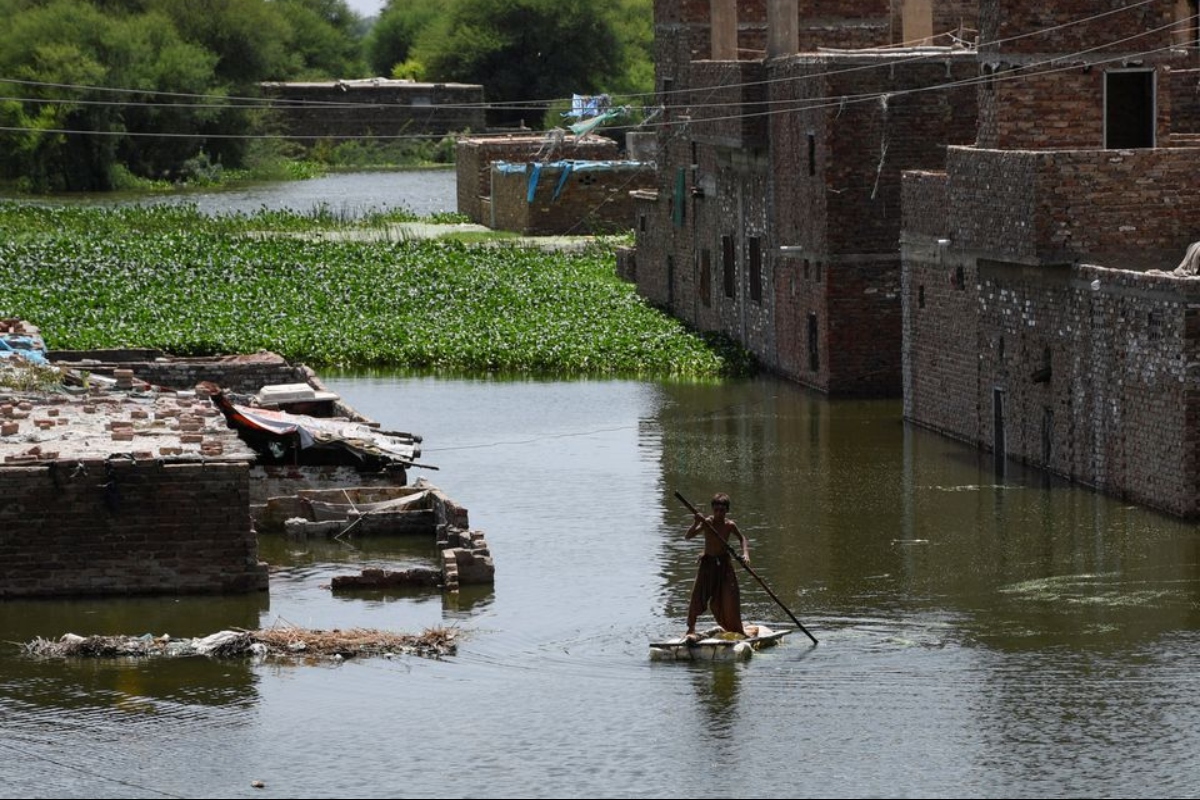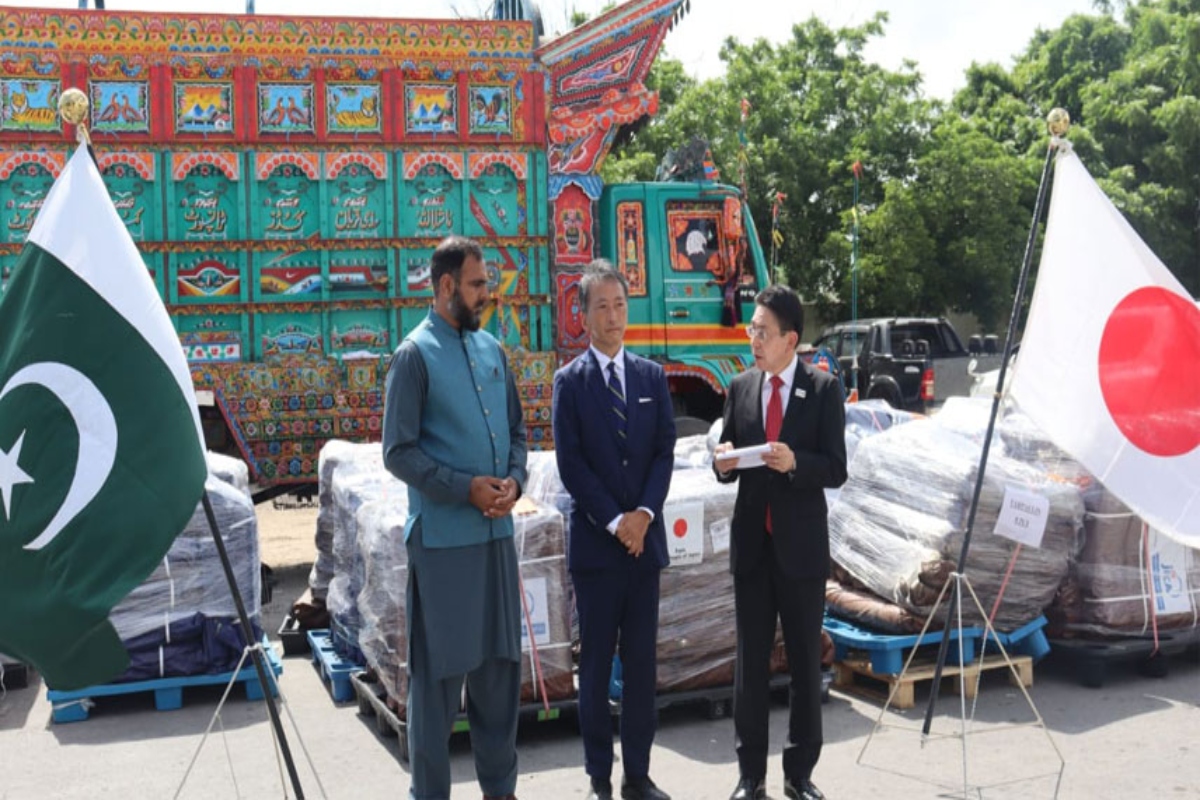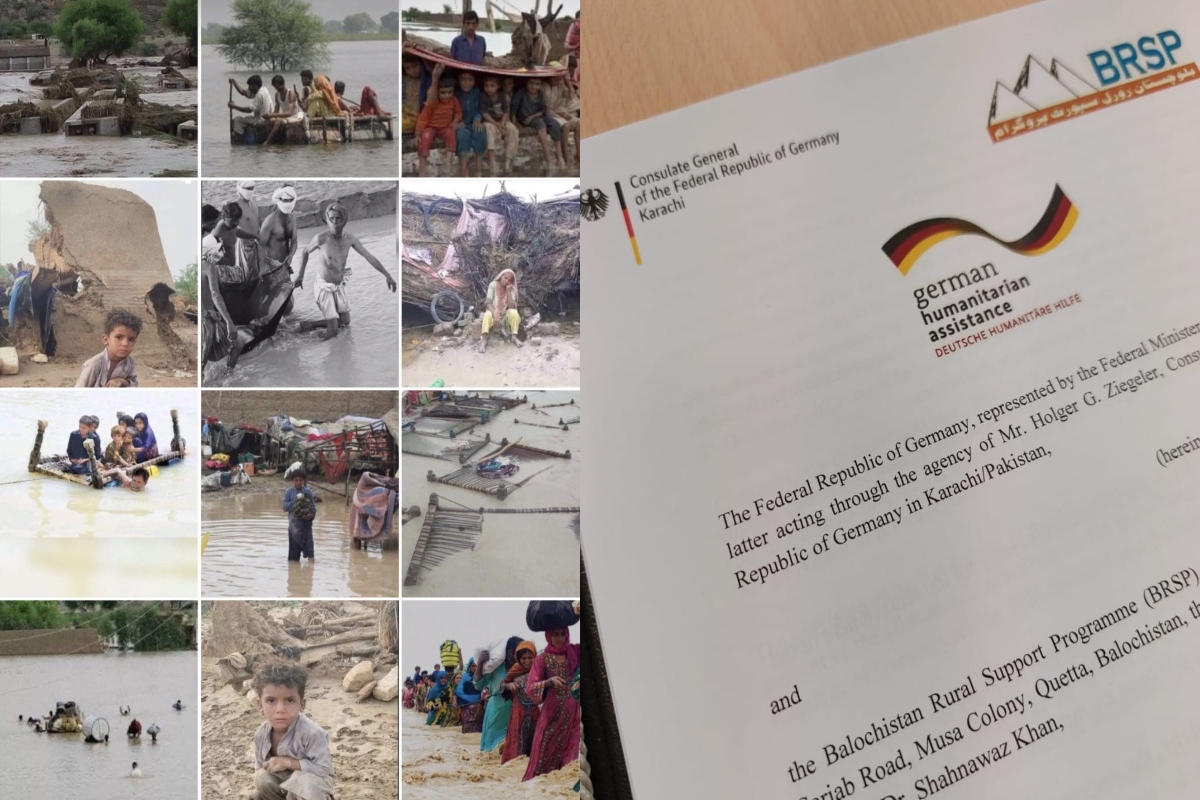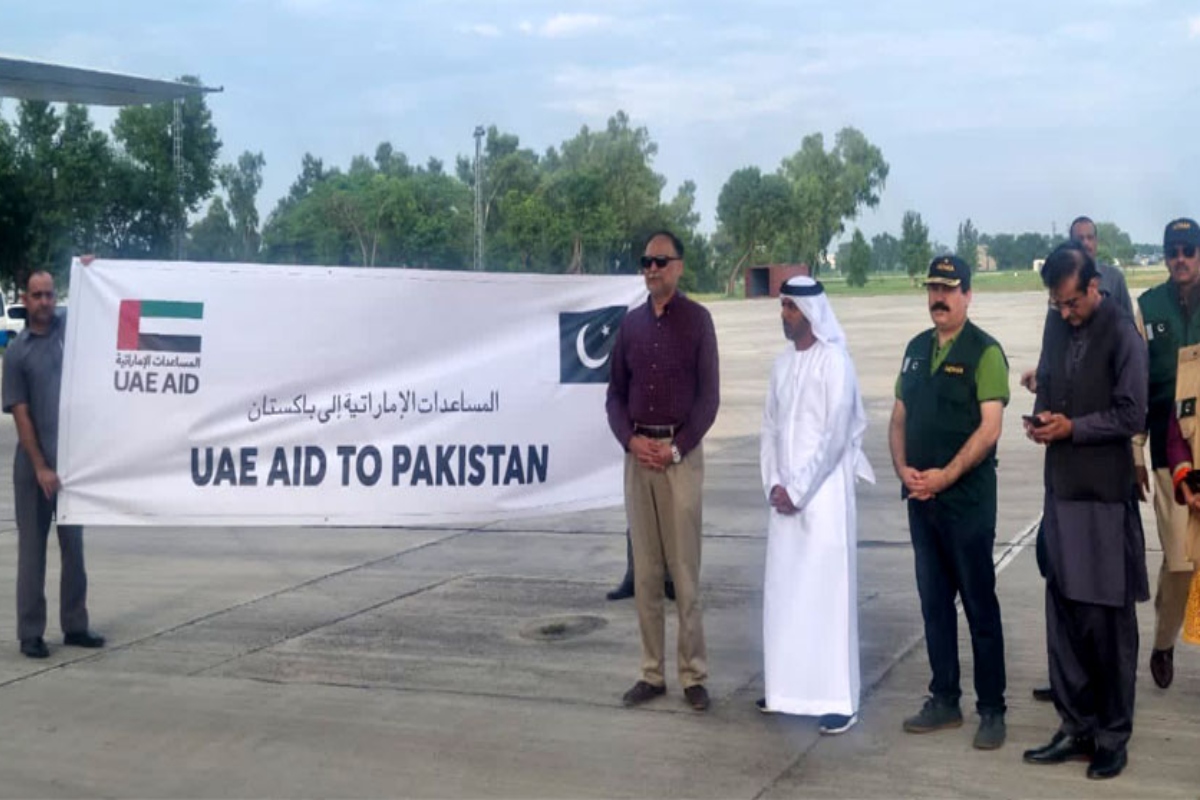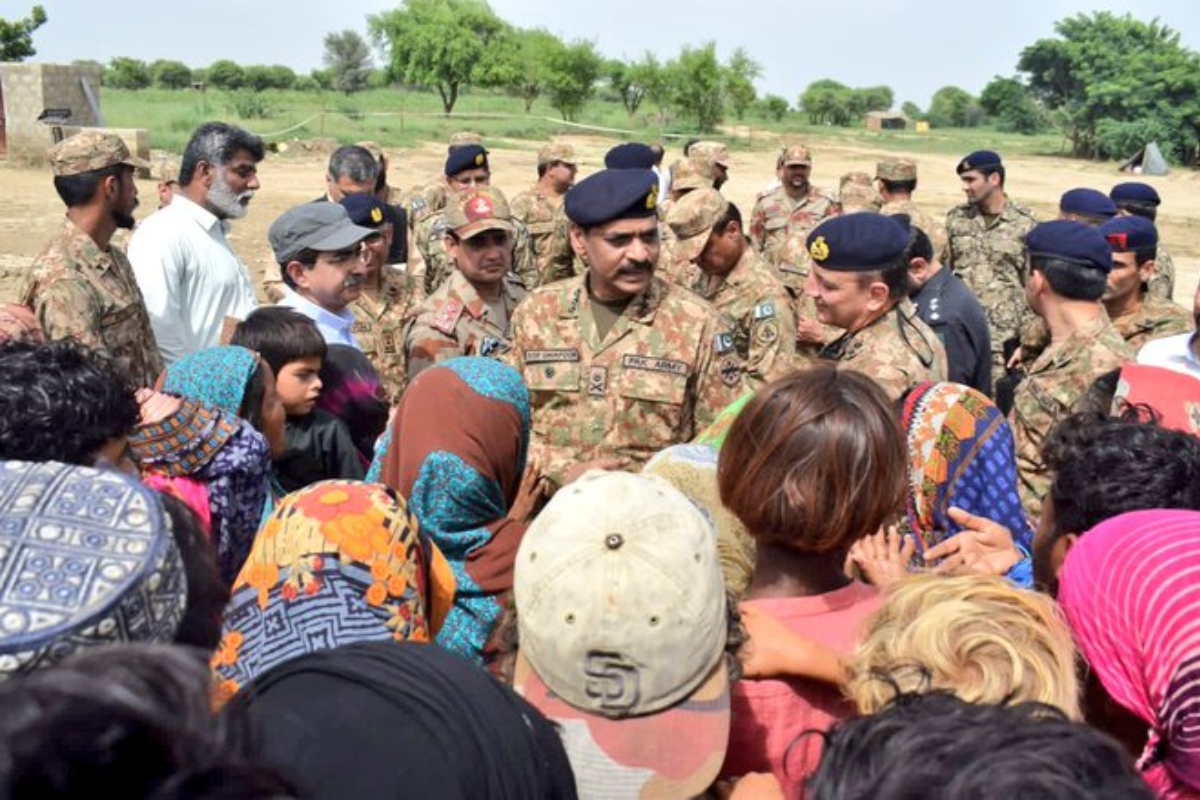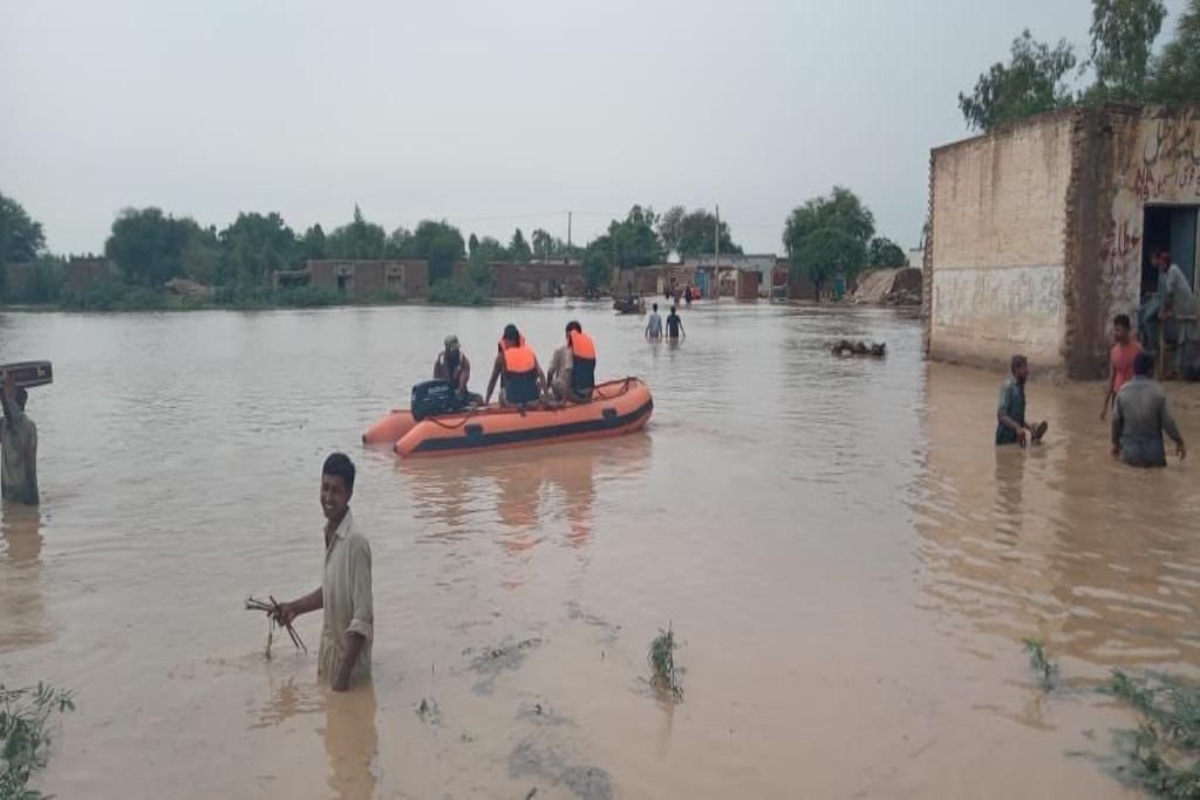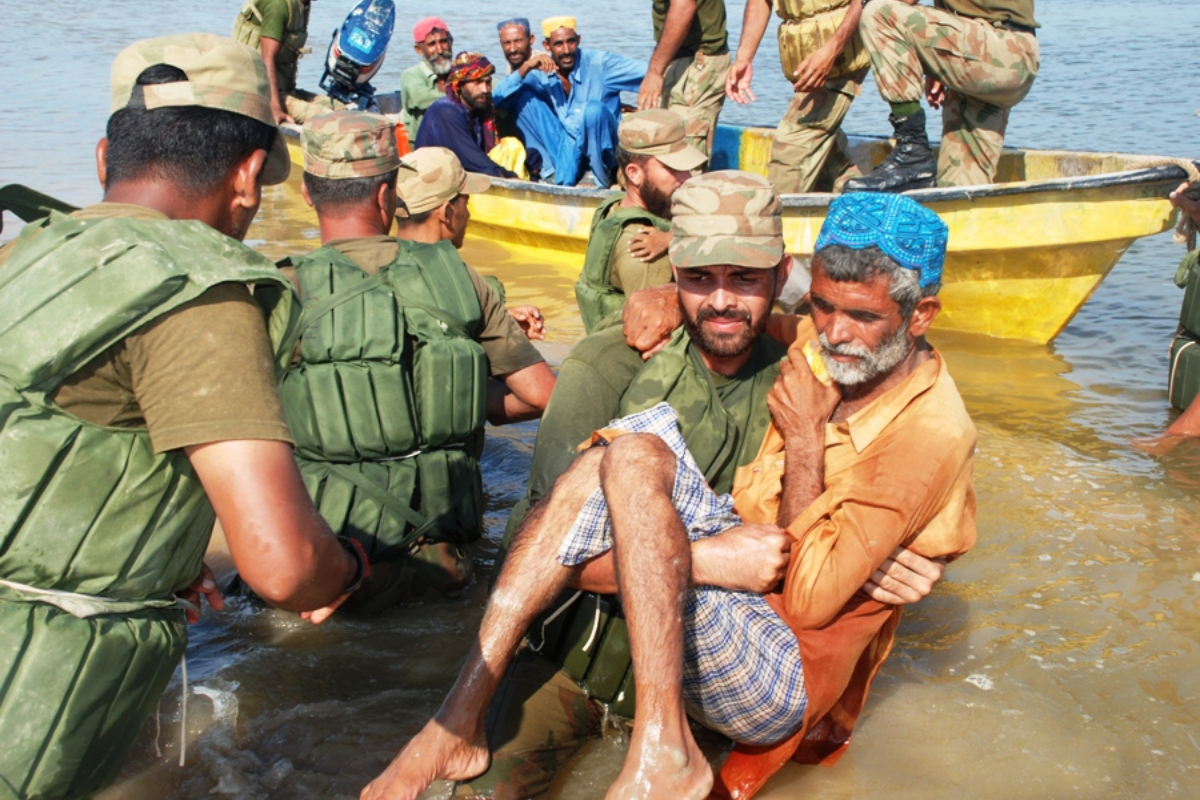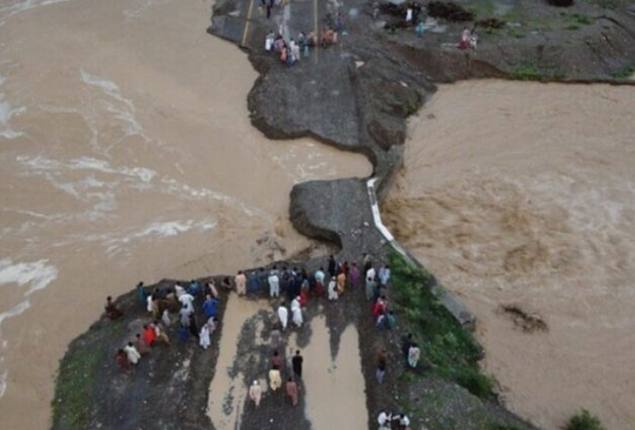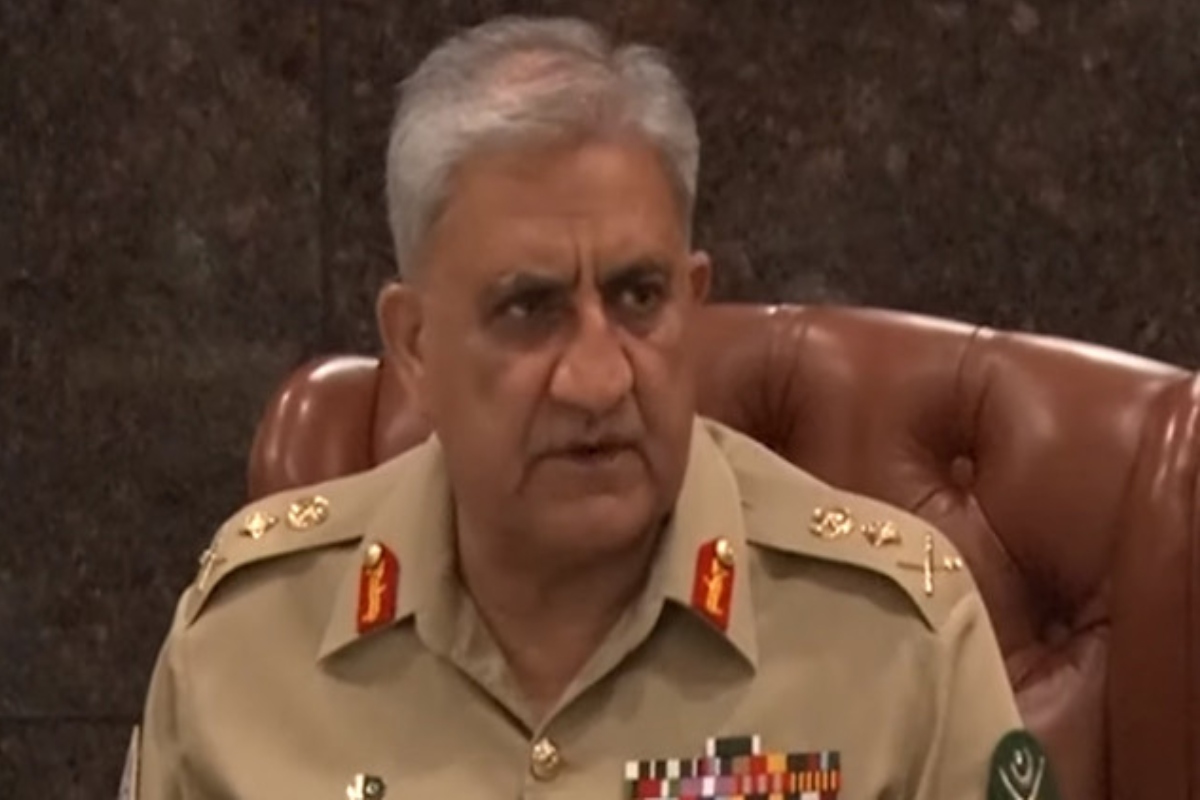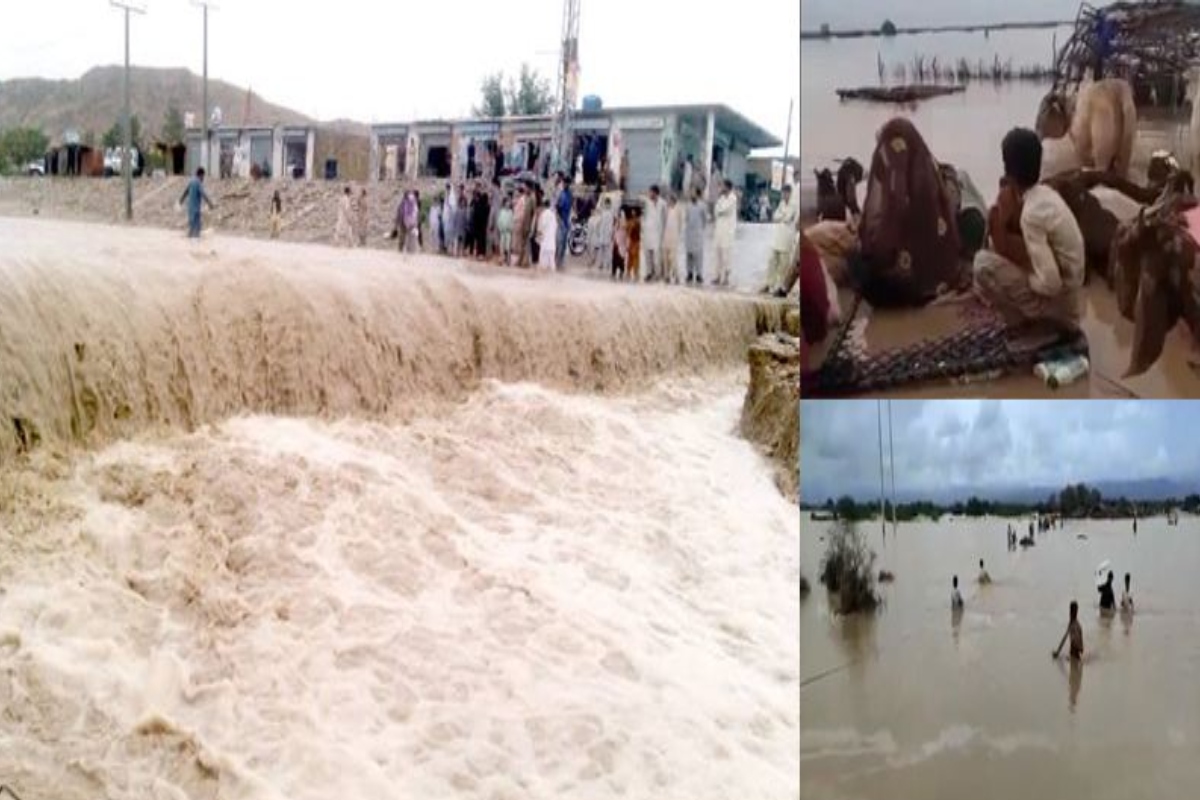- UN Secretary-General Antonio Guterres tours flood-ravaged Pakistan.
- He says he has ‘never seen climate carnage’ on this scale.
- Blames wealthier countries for contributing to disaster.
Antonio Guterres says he has “just no words to convey” the carnage he witnessed in Pakistan, blaming wealthier nations for the disaster.
While touring flood-ravaged Pakistan, UN Secretary-General Antonio Guterres said he has “never seen climate carnage” on this scale, accusing wealthier countries for contributing to the disaster.
Flooding has killed almost 1,400 people and displaced over a million in Pakistan, which has swamped roughly one-third of the country and devastated crops in a country grappling with rising inflation and a balance of payment crisis.
“I have seen many humanitarian disasters in the world, but I have never seen climate carnage on this scale,” Guterres said on Saturday in the port city of Karachi on his second day of a visit in Pakistan.
“I have simply no words to describe what I have seen today,” he said.
Melting glaciers and record monsoon rains that began in June inundated more than a third of Pakistan, causing massive damage to homes, roads, bridges, rail networks, animals, and crops.
While Finance Minister Miftah Ismail assessed the entire loss at $10 billion in the midst of a protracted economic crisis, independent analysts put the cost between $15 billion and $20 billion, with fears that it could climb further.
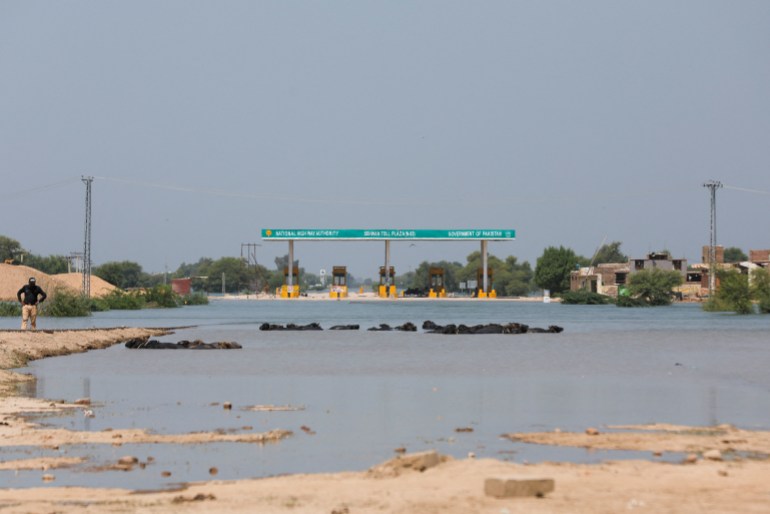
Guterres has stated that he expects his visit will galvanise help for Pakistan, which has estimated the cost of the disaster at more than $30 billion, according to the government’s flood relief centre. Shortly after his arrival on Friday, the UN Secretary-General called for “huge” global assistance.
The terrible floods have also wreaked havoc on Mohenjo Daro, a famous 4,500-year-old archaeological monument in the southeastern Sindh province that UNESCO has listed as a World Heritage site.
According to Al Jazeera’s Zein Basravi, who reported from the site, while the rain spared the main structure, the conservation work done in previous years was destroyed.
“The visit by the UN team here is meant to illustrate a very clear picture, the important point here is that the human suffering is obvious and unparalleled and you can’t compare the loss of life to what is happening here, at the same time this is an existential threat: Climate change is now beginning to wash away human history as well,” Basravi said.
Pakistan receives heavy, often destructive, rains during its annual monsoon season, which is crucial for agriculture and water supplies. But downpours as intense as this year’s have not been seen for decades, while rapidly melting glaciers in the north have for months heaped additional pressure on waterways.
[embedpost slug=”/manchar-lake-ready-to-burst-after-extreme-floods-in-pakistan/”]



